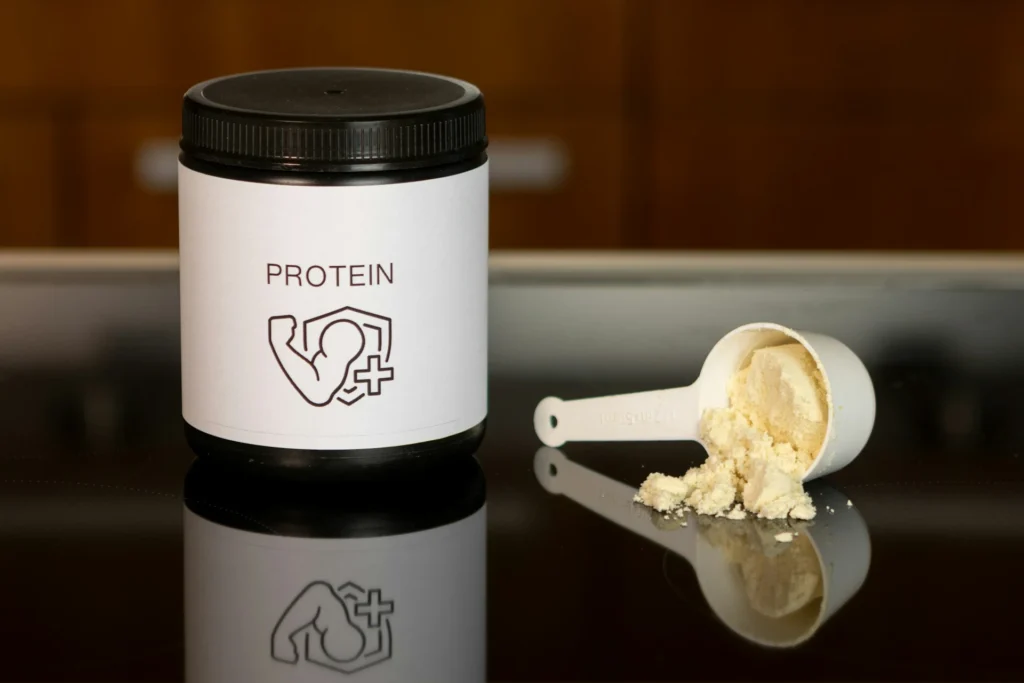Supplements for Fitness and Performance: What Works and What Doesn’t?
The fitness and performance industry is very familiar with supplements; they claim to do everything from building muscle to increasing stamina. Nevertheless, there are so many types of supplements available that it is important to know which ones are effective and which ones are not worth the hype. This guide looks into various popular fitness supplements, their advantages, potential drawbacks as well as whether or not they actually live up to what they promise. Whether you are a novice in this field or an expert athlete, this manual will serve as your compass through the confusing universe of fitness-enhancing drugs.
Supplements for Fitness and Performance
Nutritional supplements are designed to provide extra nourishment support growth of muscles tissues and improve athletic abilities. When properly used along with balanced meals and appropriate physical exercises these products can be beneficial but they should never replace whole food diets nor act as shortcuts towards achieving desired body shapes or levels of fitness. So why use them?

- Backing up Nutritional Requirements: Supplements, particularly for those with restricted diets, can be used to fill in the gaps of your nutritional intake.
- Promoting Muscle Development: There are some supplements that support muscle synthesis and recovery thus helping in muscle building.
- Increasing Stamina and Performance: Workouts can be made more energetic, focused and enduring by use of certain supplements.
- Speeding up Recovery: Supplements facilitate faster healing through reduction of inflammation and soreness in muscles.
Commonly Used Fitness And Performance Enhancing Supplements
In this section we will discuss about the most popular supplements in the fitness industry and their effectiveness.
Protein Supplements
These are among the most widely consumed types of fitness enhancement drugs which aim at promoting growth as well as recuperation from workouts through provision proteins required by body cells.
- Types of Protein: Whey, casein, and plant-based proteins such as pea and soy are some popular protein supplements. For instance, whey absorbs quickly making it perfect for post-workout while casein releases slowly which makes it fit for overnight recovery.
- Benefits: Protein supplements can be a great addition to the diet since they help with muscle building and recovery. In addition to this, they are convenient and can be used in shakes or smoothies.
- Considerations: Despite their many benefits, one should not replace whole foods with protein supplements. Moreover excessive intake may overload kidneys among other health problems.
Creatine
Creatine is widely used by athletes and bodybuilders because it helps boost muscle energy thereby improving strength and power. Here’s what you need to know about creatine:
- How It Works: Creatine increases levels of phosphocreatine within the body, which is a molecule that generates adenosine triphosphate (ATP), the main source of energy for high-intensity exercise.
- Benefits: Creatine can be used to enhance muscle strength, power and endurance therefore it is suitable for resistance training and high-intensity workouts.
- Considerations: In general creatine is safe if taken as directed. However, it may cause fluid retention hence should be consumed with plenty fluids.
Branched-Chain Amino Acids (BCAAs)
Leucine, isoleucine, and valine are the three essential amino acids that make up the BCAA group. They aid in muscle protein synthesis and recovery. Here’s what you need to know about BCAAs:
- How They Work: BCAAs stimulate muscle protein synthesis as well as reducing muscle soreness and fatigue during exercise.
- Benefits: BCAAs foster growth of muscles, minimize breakdown thereof while at the same time improving endurance during workouts.
- Considerations: The most effective time to take BCAAs is around or after training sessions but not without other sources from whole proteins.
Supplements Before Workouts
Workout supplements have been created to give more energy and focus during gym sessions. These often include caffeine, creatine and beta-alanine among other components. The following information about them is essential:
- Advantages: Energy levels can be increased, concentration sharpened plus stamina built up while using pre-workouts.
- Points to think about: They usually contain stimulants such as caffeine which may lead to jitters, rapid heartbeat or other side effects; so use with care following recommended doses.
Omega-3 Fatty Acids
Omega-3 fatty acids are types of fat that are good for the heart because they reduce inflammation in blood vessels thereby aiding recovery. Here’s what you need to know about omega-3s:
- Sources: Fish oil is one common source where these essential nutrients can be found but also there’re plant based sources like flaxseed oil which provide this substance too. In fact most omega three come from fish oils.
- Advantages: Joint pains relief is possible through taking omega 3 supplements as well as muscle health improvement and better cardiovascular functioning can also be achieved.
- Considerations: Some individuals might experience digestive problems when taking omega three supplements therefore it would be advisable to go for highly refined ones so as minimize contamination risks.
What is ineffective? Supplements that should be avoided
It is true that certain supplements have benefits but others are not scientifically proven or overrated. Here are some supplements you may want to think twice about taking:
Proprietary Blends
In pre-workout supplements especially, proprietary blends can be found frequently along with other products. These contain a mix of ingredients but do not disclose the exact amounts. Without knowing what you’re putting into your body there is potential for negative effects or taking doses that don’t work.
Fat Burners
Marketed as a way to lose weight and increase metabolism fat burners often contain stimulants and unproven ingredients. They can cause side effects such as an accelerated heart rate, jitters, or digestive issues. For sustained weight loss focus on eating well and exercising regularly.
Detox Supplements
Detox supplements claim they clean out toxins from the body while also promoting weight loss. However this is not backed by much scientific research at all. The liver and kidneys are responsible for most of the bodies’ natural detoxification processes anyway so if anything these could be harmful rather than helpful.
Testosterone Enhancers
To promote muscle development and increase performance, testosterone enhancers are sold. Most of these products contain ingredients that have not been proven effective or supported by science. Moreover, the usage of such boosters might cause hormonal imbalances among other health hazards.
Advice on Selecting and Using Supplements
Here are tips for choosing and using supplements to get the most out of them while avoiding potential risks:
Give Priority To Whole Foods
A balanced diet should never be replaced by supplements; instead, they should be used in addition to it. Start by getting nutrients from whole foods then use supplements to meet specific requirements or support particular fitness goals.
Study The Components
Find out what each component in a supplement does before taking it; this can be achieved through researching about their functions individually as well as together within this context. Furthermore one should look out for those which have been scientifically proven right for use alongside considering proprietary blends with caution.
Select Brands That Are Reputable
Ensure you go for brands known for having good reputations when purchasing any type of supplement so that they do not hide anything about the manufacturing process or even fail third-party tests done on them. This way one is guaranteed that what is indicated on the label corresponds with what can be found inside each bottle while also ensuring no impurities were added during production.
Observe Prescribed Amounts
It is important always follow dosage instructions provided for a particular product since exceeding its recommended intake may result into negative consequences which could pose serious threats towards wellbeing than benefits anticipated from using such item(s).
Seek a Specialist
If you are uncertain about supplements, consult a healthcare provider or registered dietitian. They will give you customized tips depending on your fitness ambition, health, and dietary requirements.
Conclusion
While it is important to understand what does and does not work, supplements can support fitness and performance. Educate yourself about commonly used supplements’ benefits as well as their risks so that you can make informed choices towards your wellbeing goals. Whole foods come first; look into different kinds of supplements; stick with prescribed amounts to stay safe while achieving desired results for workouts or athletic feats. Follow these instructions for using drugs: read more books!
Frequently Asked Questions
01. What are the most effective muscle building supplements?
Some of the best supplements for muscle growth are protein powders, creatine monohydrate and branched chain amino acids (BCAAs). They help in increasing muscle mass and strength by promoting synthesis, recovery and endurance processes within muscles.
02. Do I really need pre-workout supplements for better performance during exercise?
Although they may enhance energy levels and concentration while training, pre-workouts aren’t compulsory for everyone. If you decide to use them, it’s important to consider your sensitivity towards stimulants as well as the desired effects.
03. Are fat burners any good at all when it comes down to losing weight?
Most fat burning products are usually overrated with excessive claims about their efficacy. In addition, some contain large amounts of stimulant compounds that can lead to adverse reactions like nervousness or sleeplessness. A healthy lifestyle involving proper nutrition combined with regular physical activity remains the most sustainable approach to weight management.
04. How do I go about choosing quality dietary supplements?
The key is always looking out for trustworthy companies which provide clear labels on their packages along with independent laboratory results confirming purity and potency. Moreover, one should conduct a background check on ingredient profiles through scientific literature before making any purchase decisions.
05. Is it necessary for me to talk with my doctor before taking nutritional supplements?
It would be prudent if individuals consult medical professionals such as physicians or registered dieticians especially when they suffer from other health conditions or take prescription drugs which might interact negatively with certain supplement formulations.





